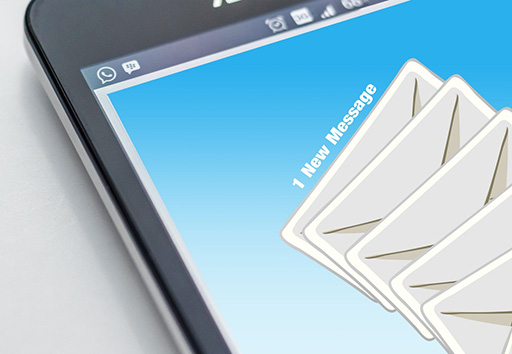Anyone sending bulk email can be flagged as a spammer. Bulk email is sending an email to a group of recipients. The more emails you send and the larger your recipient lists, the greater the risk of being flagged, but there is no such thing as a safe limit that you can stay under. Any bulk emails you send could potentially land you in trouble.
Everyone is coming down hard on email spam, from governments with anti-spam legislation like CASL, to Internet Service Providers (ISPs), who are doing more and more to detect and block bulk email.
ISPs, as well as companies that provide spam-filtering services, process a lot of email. This gives them the ability to collect large amounts of aggregate data with which to identify spam, and potentially blacklist the sender. Once you are blacklisted, it takes time and money to fix.
Services such as MailChimp, Constant Contact, and Campaign Monitor protect you from getting blacklisted. However, even when using these services, you must follow good email practices, because the industry looks at your "email reputation".
What is Email Reputation?
Your email reputation is how ISPs and anti-spam systems track and score the desirability of the bulk email your organization sends. If you have a good reputation, then there's a good chance your emails will end up in recipient inboxes. But if your reputation is low, then your emails are more likely to end up in spam folders or be blocked entirely.
Many factors can go into determining your email reputation, and every ISP does it differently. Common things they look at include:
- how many different people you send to.
- the total volume of email you send.
- whether you send to "spam trap" addresses - these are made-up addresses to which no emails should ever go.
- what percentage of emails you send, end up bouncing.
- how much user engagement your emails generate. If people delete your emails unopened, that's bad.
- how many recipients mark your emails as spam.
- how many recipients click "unsubscribe".
How can I protect my Email Reputation?
- You want to keep your email lists clean. This means removing bounce back addresses from your email lists, and correcting typos. Repeatedly sending emails to addresses that bounce can really hurt your email reputation, as it's the mark of an indiscriminate spammer.
- Follow CASL rules.
- Be mindful of what you send and how often, people don't want to be bombarded. Even if they consent to email, they may still indicate to their ISP that your emails are "spam".
If you have a bad email reputation, third party email services may drop you as well.
How does the Exware AMS help?
- The Exware AMS has built-in CASL rules.
- The Exware AMS filters out repeated bounce backs until fixed by admin
- The Exware AMS integrates with third party email services so your domain/IP doesn't get blacklisted
In summary, organizations used to get away with anything when sending out email blasts. However, the industry and government legislation has changed that, and it's probably only going to get tougher.

